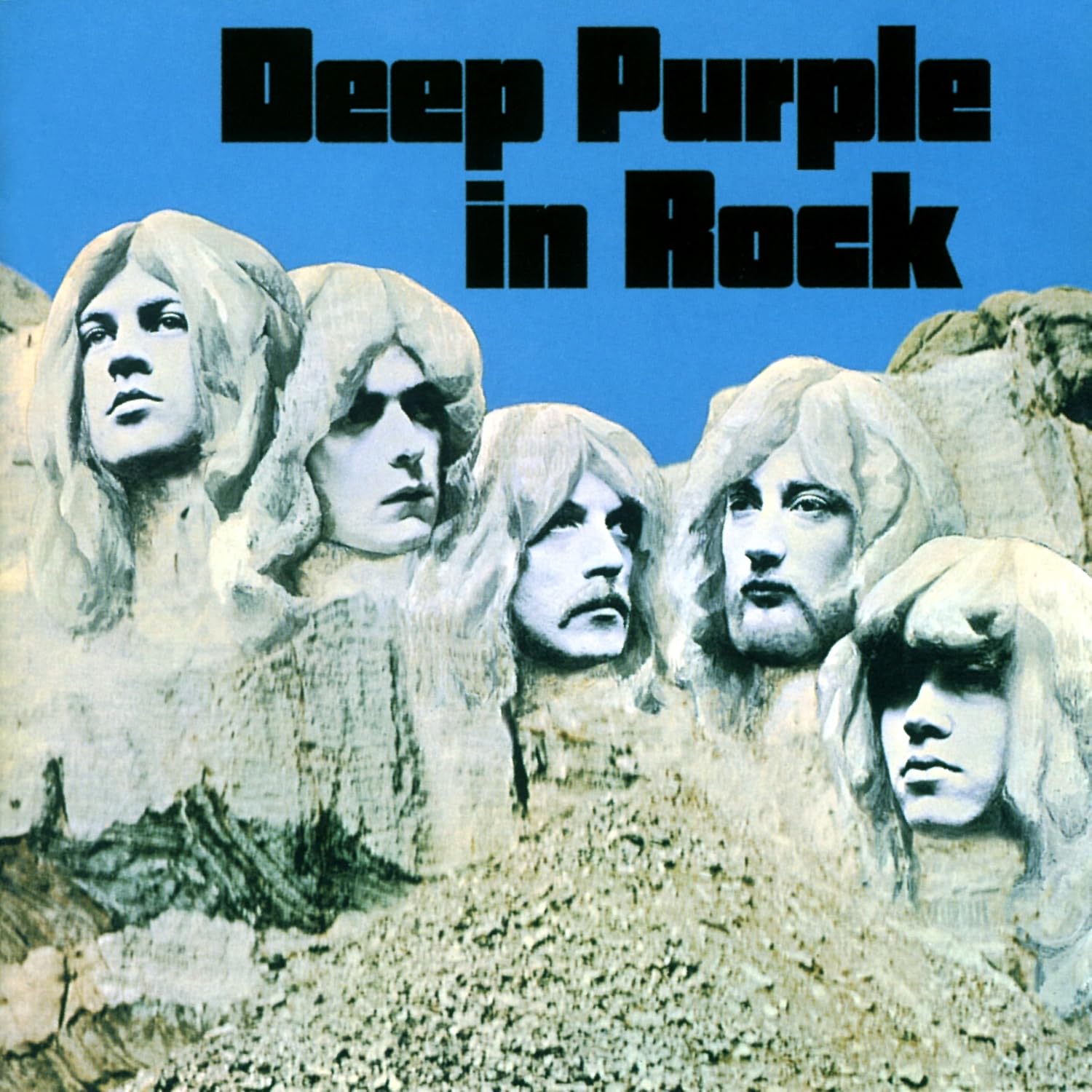Deep Purple In Rock (1970)
After three musically interesting yet modest selling albums and a live performance with the Philharmonic Orchestra mostly fueled by the dreams of Jon Lord, Deep Purple, or perhaps in particular Ritchie Blackmore, envisioned a new direction for the band. Ritchie realized that the audiences of the late 60's were yearning for a harder sound and had no patience for the longer restrained parts or the classical interludes and ballads as heard on the previews output. The record buying crowd had a growing appetite for pure guitar based rock with high electrical energy, fast tempos and earth shattering vocals. And so, the aptly titled Deep Purple
In Rock was released in June of 1970. The album that would begin Deep Purple's ascension into hard rock superstars.
Just to make their point,
Speed King starts out in a frenzy with fuzzed out screaming guitar grinding and soloing by Blackmore before dying out and giving way to a beautiful little solo bit by Lord. When the first verse kicks in Lords playing takes a backseat, instead pushing Glover and Blackmore's shared dominant riff to center stage. This would become very typical of the classical MKII Purple songs. More emphasis on the guitar and bass riffs with the organ appearing less prominent as a solo instrument - instead used more effectively during lead breaks and in interplay with the guitar solos, as in the solo section of Speed King that sees Lord and Blackmore trade off solos in what would become a much used classic "call and answer" bit live. And then we have Gillan...Just an unbelievable performance from him on this album. Perhaps my favorite Gillan highlight is when he reaches new levels of hard rock screaming during the "
Awh, no, no no!" part in the second track Bloodsucker and of course his famous screams in
Child In Time. The latter really the centerpiece on the album. One of the quintessential songs of hard rock, or rock music in general. A majestic epic that leads the listener through highs and lows with stellar performances from everyone.
Flight of The Rat is like Speed King again a display of their new hard rock direction: Catchy, infectious licks and interplay with fuzzed out soloing by Blackmore, performed in speeds pretty much unheard of at the time. Into The Fire - I love Gillan's vocals on this one, especially the way he sings the title. Musically there isn't that much to it - but it's an enjoyable little slow and heavy tune with a bit of a funk feel. Living Wreck continues in the same vein with some tasty organ playing by Lord before the album comes to a close with Hard Lovin' Man, again, listen to the ferocious riffage and the speed of the track. Complete proto-metal. Great playing, great solos!
Overall. One of the best albums in hard rock easily and way ahead of it's times.... Together with the first few Sabbath albums the beginning of metal. Purple never had the same heaviness as Sabbath but they had the finesse playing, the interplay and the energy that would be key elements in speed and heavy metal.




